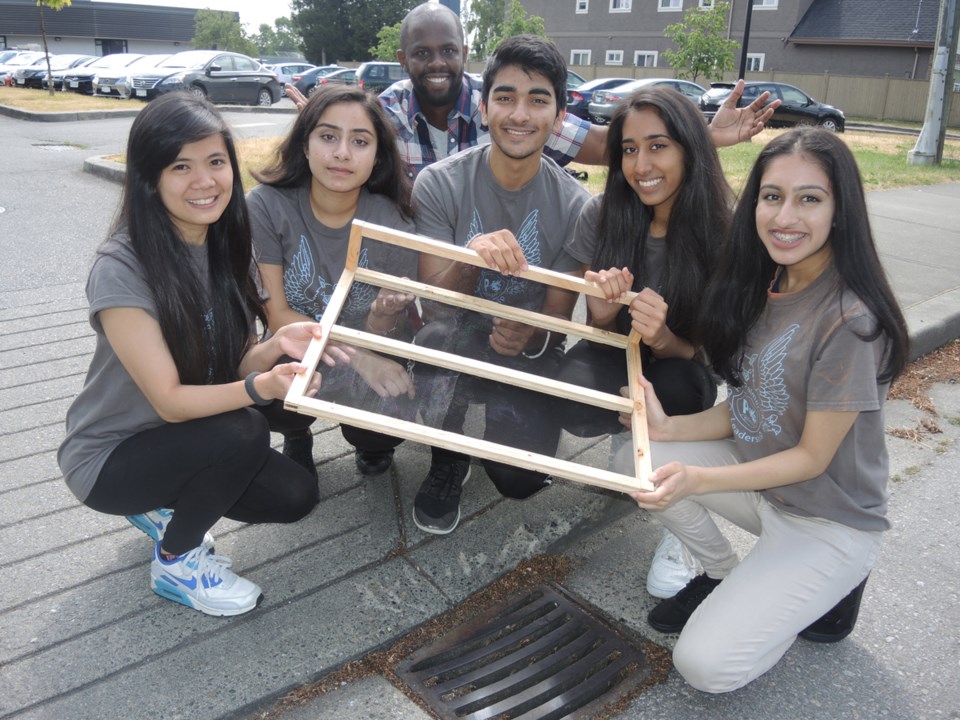It might not happen this month, or even this year, but a group of Richmond students is hoping to hammer a small dent in the 4.5 trillion cigarette butts that are littered worldwide annually.
According to the World Health Organization, only 10 per cent of the estimated 15 billion cigarettes sold worldwide each day are properly disposed of, causing two billion pounds of potentially poisonous chemical trash.
And with much of that leaching into the ocean and being mistakenly consumed by marine mammals and fish, a five-strong group from Palmer secondary’s leadership class has teamed up with a local entrepreneur to design a device that could stem the flow.
The students — Aman Mohar, Vanessa Vuen Parrenas, Navin Gill, Manesha Dulay and Jasmin Mander — have been working with Jean Paul Kamand since March, after Kamand gave a presentation to their leadership class about passion.
After several months of endeavour, and with the help of Palmer’s Grade 11 “tech kid” Jake Bransford, the team have a prototype drain filter, which will feature in their social awareness project presentation on Friday to school trustees and local dignitaries.
“It’s really something that should have been done before; we’re shocked that it doesn’t exist already,” said Vanessa.
Although the prototype filter is made of wood, Kamand, who owns and operates Vancouver-based We Did It cleaning services, said, if the project gets off the ground, the device will be made of something such as aluminum.
“We haven’t quite costed it out yet, it’s still early,” said Kamand, who only harboured in his head the filter idea before meeting the students a few months ago.
“Their input has been incredible; the students’ ability to connect with politicians and policy makers has been amazing.”
Manesha said they’re hoping to see the filter installed, at least in their own school, before the summer break.
“We would love to see them around Richmond and across the Lower Mainland,” she added.
“We’ve been in touch with the school trustees in Richmond and they appear to be interested.”
Kamand said he’s keen to keep working with the students on the project during the summer, with a view to the idea becoming a business venture in the future.
“Like most projects, there’s a deadline, but not this one,” he said.
“I need to speak to their teachers about working with them in the summer and we will keep on this. This is their baby, as well.”



